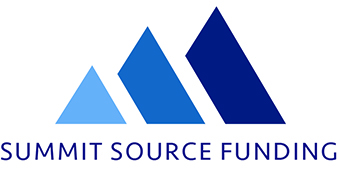US Investor Opportunity As Helium Supply Threatened By Qatar Crisis
In June, 2017 a group of Middle East countries led by Saudi Arabia recently united to sever diplomatic relations and initiate a blockage of their neighbor Qatar for allegedly enabling the funding and growth of terrorist groups. The impact of the blockage and closing of export routes previously available to Qatar had an sudden impact on its ability to export 32% of the global supply of helium. This created an immediate threat to the supply chain, manufacturing and innovations in electronics, technology, internet access, medical and military industries who all require a steady supply of helium.
“While there was already a need for expanded helium exploration and production in the US to meet the growth in global demand, the geopolitical climate in the Middle East has amplified the opportunity for investors,” explains Lucas Kalisher, CEO of Summit Source Funding a private equity firm that specializes in private investor funded Helium exploration and production projects in the United States.

In July, Qatar was able to get back online with producing helium but the crisis and challenges are far from over.
“The thing this really highlights,” says Phil Kornbluth, head of U.S.-based industry consultancy Kornbluth Helium Consulting, “is that the helium supply chain, even though there’s ample supply when everything is running, is inflexible and fragile.” The challenges of handling liquid helium and the fact that it’s only made as byproduct of natural gas in a few places around the world all make helium a tricky product to source. Qatar is producing helium again, but the political crisis is not over. It’s been a wake-up call,” reports The Atlantic.
Qatar is the second largest producer of helium and the boycott by the Arab neighbors forced it to close its two helium production plants. “Helium is the single commodity that is affected most by this blockade because it’s probably the only thing where Qatar is a major world producer and the supply has been completely cut off,” Kornbluth told Reuters.
Scientist Fear Helium Shortage will Impact Research and Medical Manufacturing
Nature.com reports that, “Scientists fear they may be forced to halt experiments or shutdown laboratory instruments because the ongoing blockade of Qatar is threatening their helium supplies. The Gulf state supplies hospitals and laboratories around the world, but had to close its two helium plants.”
Helium Shortage Has Global Impact and Creates US Opportunity
Prior to the Arab blockade, helium supply was already at risk. “And, although the world’s helium reserves have not been depleted, it is a nonrenewable resource. When it’s gone, it’s gone. That’s true of many substances, but with helium, things are different. There is no known substance that can replace it,” writes Dr. Don Lincoln, senior physicist at Fermilab and CNN contributor.
On its website, Qatar’s Rasgas company succinctly explains the importance of Qatari helium to Asia: “Since 2000, world demand for helium has increased by approximately 20 percent. Future growth in helium consumption is expected to be driven by demand from electronics manufacturers in Japan, China, Republic of Korea, and Taiwan.”
According to Reuters reporting on the helium shortage, “Demand for the gas, driven particularly by Asia’s booming manufacturing industry, is on the rise. U.S. reserves meanwhile are dwindling due to the lack of helium production from its oil and gas fields, and the country has already had to start importing helium from Qatar.” With that supply cut off, Asian countries and its suppliers of helium are now looking to the US to meet the demand. This could have significant implications if helium prices rises and increase opportunities in the US.
Also according to Reuters, “Japan’s Iwatani, which is a major supplier of helium to China and Southeast Asia, ‘said it had a month’s supply in stock’. German industrial gases company Linde said it was working on meeting customers’ requirements via helium in the United States as well as some smaller exporting countries.”
Even before Qatar’s move to shut down helium supplies, global demand for the gas was growing at 2 percent a year.
What the Helium Shortage Means for US Investors
In the near and long term it could well mean countries around the world and, in Asia in particular, will be sourcing their helium supply elsewhere. The quest for alternative helium suppliers could benefit the United States and those who invest directly in helium production.
“Going forward, helium users should pay increased attention to the make-up of the supply portfolio of its suppliers,” wrote Kornbluth (Gasworld US Edition, August, 2017).
The good news for investors is that companies like Summit Source Funding in Colorado are leading the way in the discovery of new helium exploration and production opportunities. Private investment in these projects could mean significant gains for investors. Increased demand, political instabilities in foreign helium producing countries and decreased supply, could mean great opportunity for investors that qualified to invest in helium exploration and production projects.
“Summit Source Funding has secured significant opportunities to extract helium that could benefit private investors. We have wells and acreage with some of the highest concentrations of helium in North America. We expecting to have production facilities coming online by the end of 2017, just in time to support the increased global demand on US produced helium. Even as supply increases, the opportunity for investors will remain. Helium is a limited resource with no alternative to support the supply chain of so many diverse industries,” said Kalisher.
For More Information Contact:
Jeff Ragsdale
Executive Director of Business Operations/Director of Investor Relations
Summit Source Funding
2760 29th Street, Suite 2A
Boulder, Colorado 80301
Office: (800) 928-6964
Fax: (720) 465-6533
Email: Info@SummitSourceFunding.com
